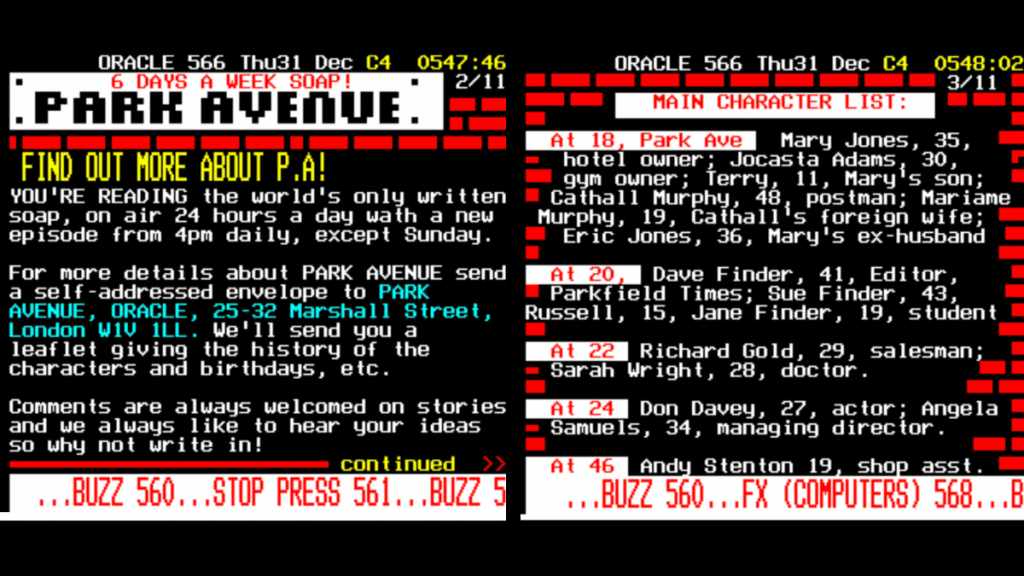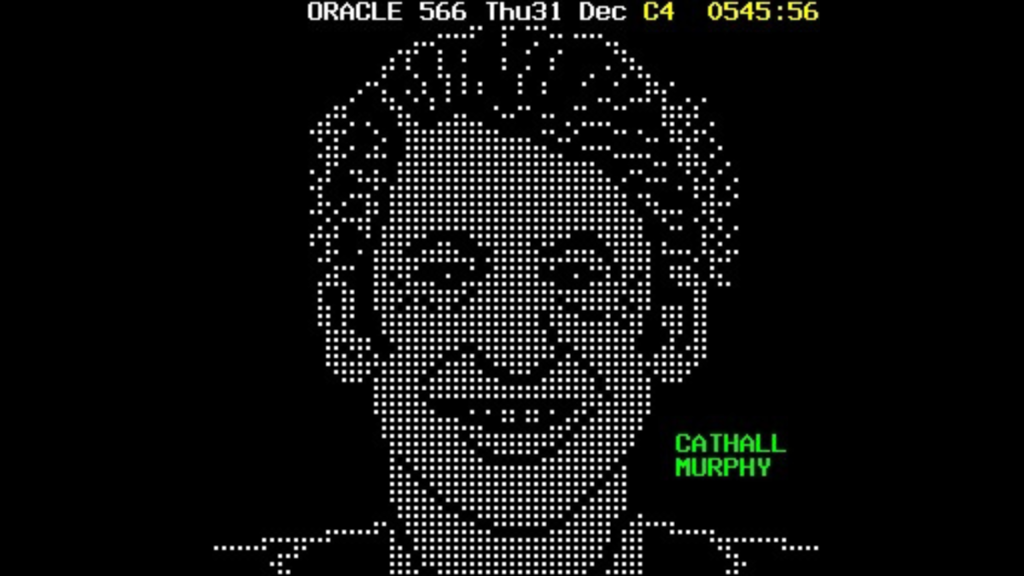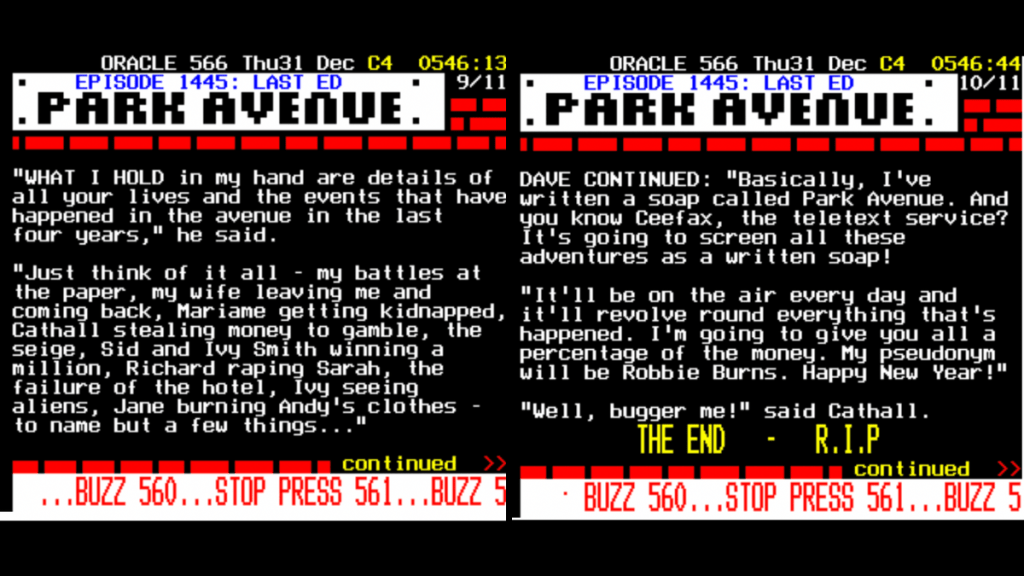Remembering Teletext’s Park Avenue: the UK’s Strangest Soap Opera?
This surprising soap format ran for almost 1,500 episodes between 1988 and 1992, and was full of sex and scandal – Park Avenue was a real one-off.

The 1980s was a good decade for British soaps. New ones were popping up all over the shop – first Channel 4 launched Brookside in 1982, then the BBC began broadcasting EastEnders in 1985 – but in 1988 an altogether different kind of soap arrived: Park Avenue, the world’s first teletext soap.
For the uninitiated (aka people under 30), teletext was kind of like the internet for your TV in the eighties and nineties, accessed via your remote control, with hundreds of pages of text and rudimentary graphics detailing the latest news, weather, TV listings, and sports results. You could even play games (like the popular weekly quiz, Bamboozle) and book a cheap package holiday. And between 1988 and 1992, thanks to Park Avenue, you could also read a soap opera.
Yes, that’s right – who needs moving pictures anyway? Those TV soaps were just showing off, and don’t get us started on radio soap The Archers, with all its high-falutin’ sound effects. What the people really wanted was big blocks of basic white-on-black text graphics in a font that was far too small. It took ages to load each page, but that just built the tension!
Park Avenue’s latest episode (?!) was released every day at 4pm, except Sunday, and was usually six to 10 pages long. It was written by Robbie Burns (no, not the bloke who wrote Auld Lang Syne) and centred on the antics of the residents of Park Avenue, a street in the fictional town of Parkfield, “somewhere near London”.
There was no catch-up service, or repeats, but no matter – Park Avenue provided synopses of recent storylines, and also listed an address where you could send a stamped-addressed envelope to receive a leaflet giving “a list of the characters and their birthdays etc”.
Sometimes episodes also began with a list of character profiles detailing important facts about them. No, not their motivations or past actions – who cares about that stuff? Park Avenue told us their ages, occupation and occasionally whether they were “foreign”.

So what happened? Well, there were the usual scandals involving affairs, dodgy business dealings, family feuds, addiction, the occasional love child and car explosion. But Park Avenue liked to keep it current, so one character – Ivy, a grumpy retired lady married to Sid – refused to buy beef during the 1990 BSE scare, and around the time of the 1990 Strangeways Prison Riots, Park Avenue featured a copycat riot at Parkfield Prison, and Parkfield Times editor Dave somehow ended up acting as the hostage negotiator.
Sometimes, the Park Avenue team would even let the audience vote via phone-in on the outcomes to certain storylines, for instance whether Angela, the local wine bar owner, should accept a marriage proposal from the younger man she’d only been dating for four weeks, hopeful actor Don. (Thankfully for Don, the audience voted 63% in favour of Angela saying yes!)
It wasn’t all text, though. Occasionally Park Avenue released teletext graphics of what they thought the characters should look like. This traumatising demon, for instance, was Cathall Murphy, whose storylines included stealing money to feed his gambling problem:

Here are a few more examples of the dead-eyed horrors that passed for character sketches in Teletext technology:
In the end, Park Avenue ran for four years, and produced an eye-watering 1,445 episodes. When it ended, it wasn’t even Park Avenue’s fault: the ORACLE teletext service lost its franchise and shut down at the end of 1992. Without that, who knows? We might still be reading about the residents of Parkfield to this day.
Park Avenue truly was a soap opera of its time, right down to its farcical, Bobby-Ewing-in-the-shower ending. That was set on New Year’s Eve 1992, the day that the ORACLE teletext service shut down, and naturally the residents of Park Avenue are having a New Year’s Eve party together. Party host Dave (aforementioned editor of the Parkfield Times) gathers everyone together to announce that he has written a soap opera about all of their lives, called it Park Avenue, and it’s going to be released on teletext:

As famous last words go, Cathall’s “Well, bugger me” has got to be up there, and was a fittingly bonkers end to one of the strangest soaps in history.
